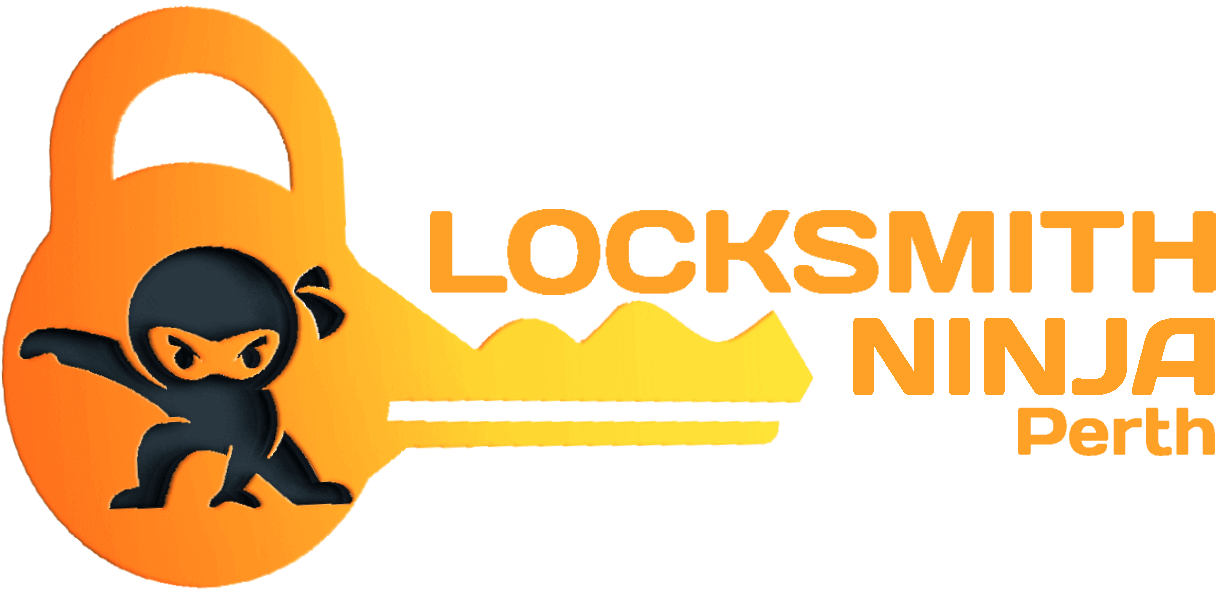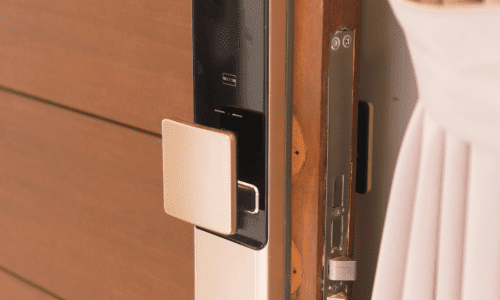What are the security differences between digital and traditional locks?
Home security begins at the front door. Whether you live in a city apartment or a suburban house, the lock you choose is your first line of defense. In recent years, digital door locks have gained popularity, challenging the dominance of traditional key-and-cylinder systems. But which is really safer?
This guide will compare digital vs traditional locks, explain their key differences, and show you how to choose the right lock for your home .
Why Home Security Starts with the Right Door Lock
The majority of home burglaries happen through front doors. A weak or outdated lock can be the difference between a safe home and a break-in. While alarms and cameras are helpful, your lock is the first barrier.
- Traditional locks have been the standard for decades. They’re reliable, inexpensive, and widely available.
- Digital locks offer modern convenience—fingerprints, passcodes, or mobile apps instead of keys.
With more people adopting smart home technology, the debate about security differences between these two types of locks has become stronger than ever.
What Is a Traditional Lock and How Does It Work?
A traditional lock typically uses a mechanical key-and-cylinder mechanism. When you insert and turn the key, it aligns small pins inside, allowing the cylinder to rotate and unlock the door.
Strengths of Traditional Locks
- Affordable: Low purchase and installation cost.
- Durable: Can last decades with minimal maintenance.
- Familiar: Easy to use and replace.
Limitations of Traditional Locks
- Lockpicking risk: Many locks can be picked with tools.
- Lost keys: Keys can be stolen, copied, or misplaced.
- Wear and tear: Cylinders can weaken over time.
For many homeowners, these locks are still effective, but they come with obvious vulnerabilities.
What Is a Digital Door Lock?
A digital door lock replaces or enhances the traditional key system with technology. Instead of relying only on keys, it may use:
- Fingerprint recognition (biometric authentication)
- PIN codes or passcodes
- Smartphone apps or Bluetooth/NFC access
- Electronic key cards
Types of Digital Locks
- Fingerprint door lock: Uses biometric scanning for quick entry.
- Keyless entry lock: Lets you enter with codes or mobile apps.
- Electronic door locks: May connect to remote control systems.
Why Digital Locks Are Popular
- No lost keys
- Easy to share access with family or guests
- Integration with smart home systems
Digital locks provide both convenience and enhanced control over who can access your home.
Security Features Compared – Digital vs. Traditional Locks
Let’s break down their key security differences:
| Feature | Traditional Locks | Digital Locks |
| Lockpicking | Vulnerable. | Resistant (uses codes/biometrics) |
| Hacking | Not applicable | Possible, but protected with encryption |
| Lost Access | Keys can be stolen/lost | PIN reset, backup keys, biometrics |
| Power Issues | Not affected | Needs batteries, but has backup options |
| Convenience | Requires physical keys | Keyless, remote, app-based |
| Cost | Cheaper | More expensive |
Myth vs. Fact Box
- Myth: “Digital locks can be easily hacked.”
- Fact: Quality digital locks use encryption, making hacking harder than lockpicking.
- Myth: “Traditional locks can’t fail.”
- Fact: Keys can break inside cylinders, leaving doors stuck.
Which Lock Type Is More Convenient?
- Traditional locks require physical keys. If you forget them, you’re locked out.
- Digital locks let you use fingerprints, apps, or codes. You can share access remotely with guests or family.
For example, if a house cleaner or delivery worker needs access, you can share a temporary code instead of giving away a spare key.
Cost and Value – Is a Digital Door Lock Worth It?
- Traditional locks: $20–$100 average cost, installation included.
- Digital locks: $100–$500 depending on features. Premium biometric locks may cost $800+.
While traditional locks are cheaper, digital locks add long-term value through security and convenience.
When Should I Choose a Traditional Lock Instead?
Despite the advantages of digital locks, traditional locks remain useful in some cases:
- Budget concerns: A basic lock is cheaper.
- Low-tech preference: Some homeowners prefer simplicity.
- Rural or low-crime areas: Where high-tech isn’t necessary.
Sometimes, a hybrid approach works best—using both a traditional lock and a digital lock on the same door.
How To: Choose and Install the Right Digital Door Lock
Step 1: Assess Your Needs
Decide what you want most from a digital lock: maximum security, convenience, or both.
- Do you prefer fingerprint access for speed?
- Do you need remote access through a smartphone app?
- Do you want a keyless entry system with passcodes for family and guests?
Step 2: Compare Digital Lock Features
Not all digital locks are the same. Compare these features before buying:
- Fingerprint door locks → Fast, biometric authentication.
- Keyless entry locks → PIN codes and temporary guest access.
- Smartphone-controlled locks → Remote locking/unlocking and activity tracking.
- Hybrid models → Combine biometrics, codes, and backup keys for extra safety.
Step 3: Check Door Compatibility
Digital locks aren’t one-size-fits-all.
- Measure your door’s thickness and lock type (deadbolt, mortise, or rim).
- Make sure your chosen lock is compatible with front doors or apartment doors.
- Some models may require professional adjustment for a perfect fit.
Step 4: Plan Installation
- DIY-friendly digital locks: Some models are designed for quick setup with minimal tools.
- Professional installation: Recommended for advanced smart locks with Wi-Fi, Bluetooth, or integrated security systems. A professional ensures correct fitting and setup.
Step 5: Maintain Your Digital Lock
Digital locks require simple but regular care:
- Replace batteries every 6–12 months, or when the low-battery alert appears.
- Clean fingerprint sensors with a soft cloth to maintain accuracy.
- Update firmware (if app-connected) for better security and new features.
- Test your lock weekly to ensure smooth operation.
Digital Door Locks vs. Traditional Front Door Locks: Side-by-Side
| Aspect | Traditional Locks | Digital Locks |
| Security | Vulnerable to picking | Encrypted, biometric options |
| Access | Requires keys | Fingerprint, code, app |
| Convenience | Low | High |
| Cost | Low | Medium to high |
| Best For | Budget-conscious, low-risk homes | Smart homes, urban living, families |
Future of Home Locks Beyond 2025
- AI integration: Predicts usage patterns for enhanced safety.
- Advanced biometrics: Iris or facial recognition instead of fingerprints.
- IoT connectivity: Integration with home security systems.
The future points toward intelligent, adaptive locks that go beyond security to provide convenience and predictive protection.
Traditional locks remain a practical choice for anyone seeking affordability and simplicity, but they do come with limitations. On the other hand, digital locks provide advanced security, keyless convenience, and seamless smart-home integration, making them a strong option for modern households.
For many homeowners, the best solution is a hybrid approach—pairing a digital lock for everyday convenience with a traditional deadbolt as a reliable backup. This way, you get the benefits of both worlds: trusted mechanical security and the innovation of smart technology.
FAQs
How do I know if a digital lock is safer than a traditional lock?
I compare tamper resistance, hacking risks, and backup access to decide if a digital lock offers more security than a regular key lock.
Can burglars still break into digital door locks?
Yes, but I know quality digital locks have alarms and encryption, making them harder to break than most standard locks on front doors.
Are traditional locks easier to pick than digital locks?
Yes, I’ve learned most traditional locks can be picked, while digital locks use codes, biometrics, and encryption to reduce this risk.
What happens if my digital lock loses power?
I can still open my door with a backup key, external battery, or emergency power port, so I don’t worry about being locked out.
Are fingerprint door locks more secure than keys?
Yes, I feel safer using a fingerprint lock since only my prints are registered, unlike keys that can be stolen or duplicated easily.
Which type of lock lasts longer – digital or traditional?
Traditional locks can last for decades, but I find digital locks last long too if I maintain batteries and sensors regularly.
Can digital locks work on older doors?
Yes, I can install many digital locks on existing doors, but I may need a professional to ensure a proper fit and secure setup.
Are keyless entry locks safe for apartments?
Yes, I use keyless entry locks in apartments because they’re convenient, and I can share codes with family without making extra keys.
Do digital door locks cost more than traditional ones?
Yes, digital locks are pricier, but I see them as an investment in safety, smart features, and the convenience of not carrying keys.
Should I replace all my traditional locks with digital ones?
Not always. I decide based on budget, home location, and daily needs. Sometimes a mix of digital and traditional locks works best.


